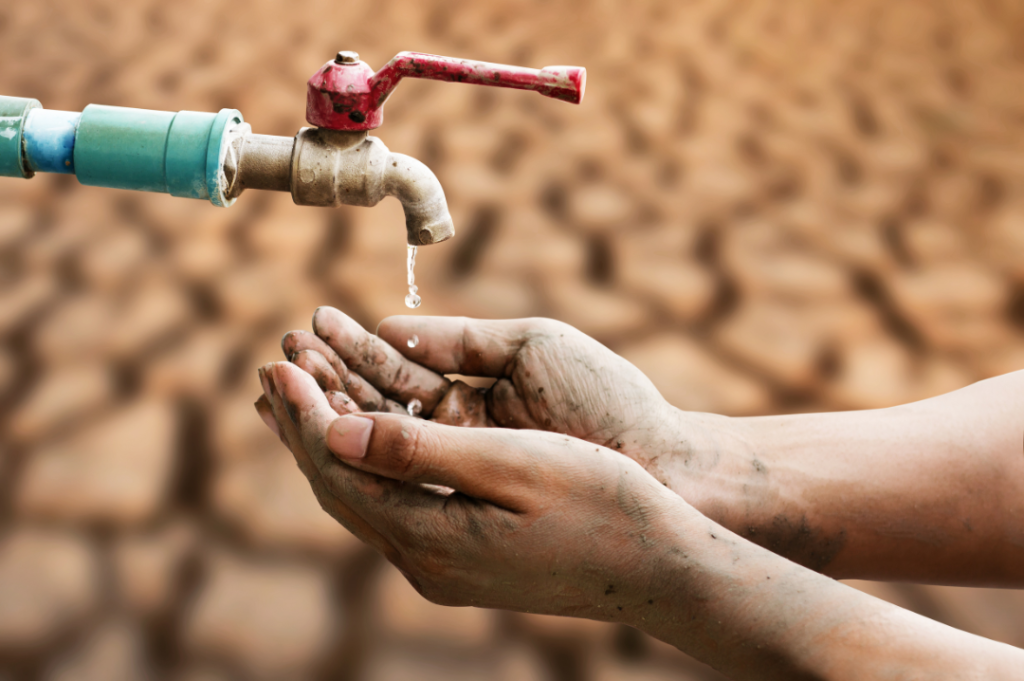This Friday marks World Water Day. Each year, this event serves as a reminder of the critical role water plays in our lives and the urgent need to protect this precious resource. The theme for World Water Day 2024 is “Water for Peace,” highlighting the interconnectedness between water and global stability. Let’s delve into why water is essential for prosperity and peace, explore the challenges of climate change, and examine potential solutions to ensure a sustainable water future.
Water for Peace
Water has the power to both create peace and spark conflict. When water is scarce or polluted, tensions can rise as communities and nations compete for access. However, by cooperating on water management, we can balance everyone’s needs and contribute to stabilizing the world (UN). As nations navigate climate change, mass migration, and political unrest, prioritizing water cooperation becomes increasingly vital for ensuring prosperity and peace. Water can lead us out of crisis, fostering harmony between communities and countries by promoting fair and sustainable water use.
Climate Change and Water
The impacts of climate change on water are profound and complex. Rising temperatures disrupt precipitation patterns, leading to unpredictable rainfall, shrinking ice sheets, rising sea levels, and more frequent extreme weather events like floods and droughts. These changes exacerbate water scarcity and water-related hazards, threatening public health, livelihoods, and economic productivity.
Water Scarcity
Today, about two billion people lack access to safe drinking water, with roughly half of the world’s population experiencing severe water scarcity for at least part of the year. Climate change further compounds this issue, with projections indicating a decline in water availability in many regions.
Currently, only 0.5 percent of earth’s water is useable and available freshwater – and climate change is dangerously affecting that supply. Over the past twenty years, terrestrial water storage – including soil moisture, snow, and ice – has been dropping consistently, with major ramifications for water security. Sea-level rise extends groundwater salinization, also diminishing freshwater sources in coastal areas.
Water-related Hazards
Due to climate change, extreme weather events such as floods and droughts have become more frequent and severe. Rising global temperatures increase the moisture the atmosphere can hold, resulting in more storms and heavy rains but paradoxically also more intense dry spells as more water evaporates from the land and global weather patterns change. Since 2000, flood-related disasters have risen significantly, with Asia and Africa bearing the brunt.
Drought and flood risks, and associated damages, are projected to further increase with every degree of global warming.
The current situation
More than 3 billion people worldwide depend on water that crosses national borders. Yet, only 24 countries have cooperation agreements for all their shared water.
Using water for solutions
To address these water-related challenges and promote sustainable solutions, various strategies can be implemented and many of them also center around water. Wetlands, including mangroves, seagrasses, marshes, and swamps, serve as potent carbon sinks, absorbing and storing CO2, thereby aiding in the reduction of greenhouse gas emissions. Additionally, implementing more resilient water supply and sanitation systems, capable of withstanding the impacts of climate change, could save the lives of over 360,000 infants annually. Adopting climate-smart agricultural practices such as drip irrigation can enhance water efficiency, reducing the strain on freshwater supplies. To limit the risk of water scarcity sparking conflict, more agreements must be made concerning water use, especially for transboundary freshwater sources.
However, these are only a few possibilities to address water-related challenges worldwide.
Final Thoughts
Ultimately, the goal is to find long-term solutions that reduce poverty and improve health and socioeconomic development for all. The 2030 Agenda for Sustainable Development details several possible and lasting solutions to address and end the water crisis, mainly by initiating and protecting policies that support universal and inclusive water services. It also includes recommendations for governments and international agencies to strengthen water governance in correlation with migration.
On this year’s World Water Day, let us remember the critical role water plays in our lives and the urgent need to protect and manage it sustainably. By uniting around water and promoting cooperation at all levels, we can pave the way for a more stable and prosperous future for all.
If you are interested in the work of MOAS and our partners, please follow us on social media, sign up for our newsletter and share our content. You can also reach out to us at any time via [email protected]. If you want to support our operations, please give what you can at www.moas.eu/donate.


